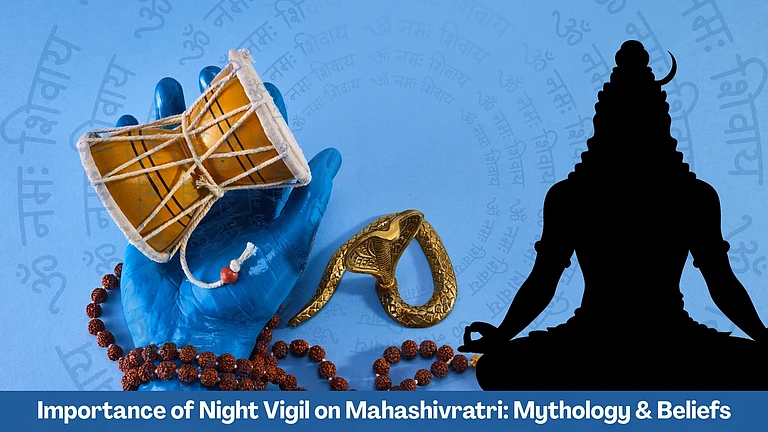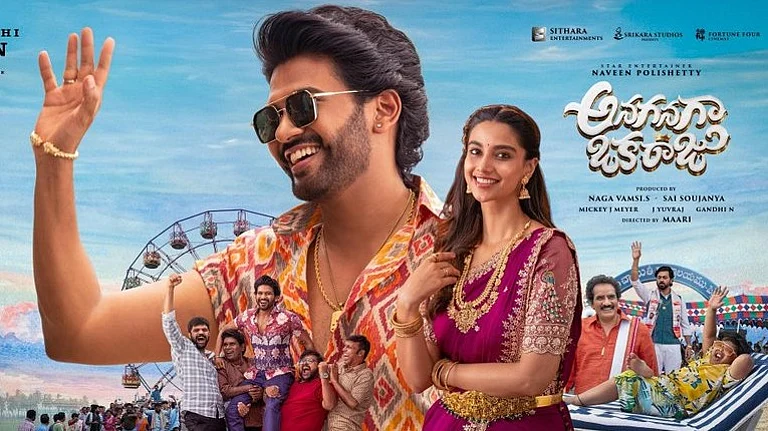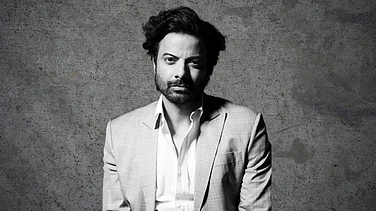Devdutt Pattanaik has been one of the most popular Indian writers when it comes to mythology and historical fiction. His work is not only followed by people who know about mythology, but even by those youngsters who’re discovering mythology and are trying to figure out what’s real and what’s simply fiction.
As an Indian, you’re exposed to a lot of historical and mythological stories, but Devdutt Pattanaik was one of the very few who dared to explain the stories from a perspective that even a layman would understand in today’s India. Youngsters love his books the most as they’re growing up in a new-age India, where they’re questioning things about myths and history and only when they get to know all sides of the story, they are ready to form their own informed decision. And Devdutt Pattanaik has been instrumental in that.
Talking to Prateek Sur, Devdutt Pattanaik candidly opens up about his journey from being a doctor to a mythologist, the importance of mythology in today’s life and lots more. Excerpts:
You are a doctor. How did you end up so much into spirituality?
Your question is very strange. It assumes that doctors can't be spiritual or that spiritual people cannot be doctors, so I'm a little confused. But I do not write on spirituality. I write about mythology, which discusses stories, symbols and rituals. Through them, cultures express their truths. These are material truths, as well as spiritual truths, political truths, and economic truths. The Audible series draws attention to some of these stories and ideas. Like the ones in Ravana 360 degrees, Krishna 360 degrees and Vedas 360 degrees.
What do you want listeners to take away from Veda 360 Degrees?
The word 360 degrees refers to the Hindu practice of Pradakshana, where you go around a deity. Thereby, you try to appreciate the deity fully. I want people to understand Veda as more than just a word. It becomes a complex part of Indian history, which is 3000 years old. It is a series of poems which talk about gods, ancestors, plants, animals, humans, women, and other issues.
You tend to explore a lot of unknown and unheard-of stories from popular mythology. What’s your core source of these stories of yours?
India has a vast storehouse of information. For example, if we talk about Ramayana there is not just the Valmiki Ramayana or the Hindi Ramayana, there are Ramayanas in Sanskrit and Prakrit. In each Indian language, there are versions. There are versions in different regions like in Southeast Asia and Tibet. Many scholars have written about these. Most modern fiction writers are too lazy to do this research. These versions are known to academic circles but not in popular circles. I aim to make these available if you are not academically inclined. I am trying to bring things that are lost in academic libraries to the general public. I do so to let the people not get swayed by mythological fiction writers who have very limited knowledge of the scriptures.
As a part of society, we all have this fabricated notion that all religions are disparate. However, you've always debunked myths and given an equal vision that all religions are somehow associated with each other. What would you like to say in this context?
I don't debunk myths, I explain myths. Myths are subjective truths of people. Myths are not fiction. Most people use the word myths as fiction and that is a colonial idea. It is time that young journalists outgrow this. God is a mythical idea, justice is a mythical idea, and equality is a mythical idea. Every religion, whether it is Christianity, Islam, Buddhism, Jainism or Hinduism, is based on an assumption, to which I would like to draw attention. Even nationalism, secularism or atheism are all various ideologies based on certain assumptions. These assumptions are expressed through stories. In Greek, a story is called mythos and thence comes the word, mythology.
You've been famous as a renowned mythologist. Why is it imperative that everyone comes across Indian Storytelling once in a lifetime?
Every human being is exposed to stories by their parents, not just Indians. If you are raised in America, you will be told American stories. If you are raised in a Christian family, you will be told Christian stories. If you're raised in a Muslim family, you will be told Muslim stories. Stories shape our world. So there is nothing unique about Indian storytelling. Indian storytelling communicates Indian ideas like Chinese storytelling communicates Chinese ideas. Just as food nourishes our bodies, stories nourish our minds and imagination.
What role does mythology have in contemporary life?
We must remind ourselves that concepts like justice, equality, god, heaven, hell, and soul are not scientific ideas. They are not based on measurement or evidence. They are assumptions that shape our lives. That is a key theme to remember. We assume that contemporary life is rational and modern. But the difference from our ancestors is merely that of technology, nothing else.
How can the Vedas be applied to our modern lives?
Vedas remind us of the importance of food. The immortal gods need food, the ancestors also need food which means we also seek food. This quest for food is what shapes all life. We can replace the word food with words like achievement, success, resources, happiness, and wisdom. But this yearning for something other is what Vedas draws our attention to. They ask whether it is possible to live a life where we can focus on other people's hunger, and other people's needs, rather than our own. When we focus only on our needs, the ego takes over, when we focus on other people's needs the Atma takes over.
What is the significance of mythology in your life, and how has mythology altered you to disseminate wisdom to everyone?
I think mythology has reminded me that human beings are not rational creatures. We believe we are rational creatures who get sentimental. But we are all hungry and frightened creatures who rationalize everything. This is the greatest knowledge, I have learned. I wish to share this by helping people appreciate the world of mythology.
What makes the mythology genre still so relevant to the youth of today?
The Mythology genre is relevant to human beings everywhere. This is why we are seeing a rise in mythological, historical, fantasy, and science fiction. Because rational and scientific thinking tries to curtail imagination. It does not realize that human beings create a better society only through imagination. Imaginary ideas like God, Rebirth, Justice and Equality create our society and we must make room for that.
Our youth is way more distant from comprehending the complexities of mythology. Do you believe they will start looking upon ancient stories in a straightforward way via your podcasts and bring a change into their life perspectives?
Life is complex, culture is complex. It is nothing new. 100 year ago, people were equally confused about life. They are not supposed to understand the complexities of mythology. Mythology is a medium through which we help people appreciate life. Even the most educated person on earth, a Nobel Laureate in Physics or Chemistry may not understand the mysteries of life. The mysteries of life shall remain, until the day you die. When we unravel the stories of the past, we get closer to some clarity. Maybe this clarity brings us some peace.
Lastly, what next can we see coming from your end?
I'm working with Audible on creating a series on unknown stories of women and Indian mythology. Let's see how that emerges.



























